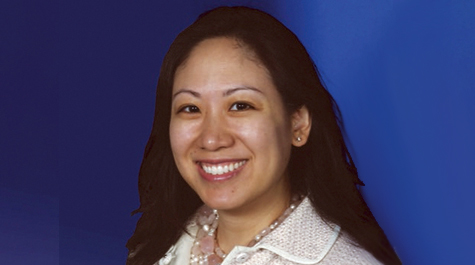Professor Margaret Hu to Join William & Mary Faculty as Professor of Law
William & Mary Law School announced today that Professor Margaret Hu will join the faculty as a Professor of Law with tenure beginning in the 2022-2023 academic year, pending approval by the Board of Visitors. Hu joins William & Mary from Penn State Law–University Park, where she is Associate Dean for Non-JD Programs and a Professor of Law and of International Affairs. In addition, she is an affiliate faculty member of the Penn State Institute for Computational and Data Sciences and the Institute for Network and Security Research in the College of Engineering.
William & Mary Law School Dean A. Benjamin Spencer said Hu “is an outstanding addition to our faculty. She is doing cutting-edge work on pressing issues such as the relationship between technology and democracy. She will bolster the Law School’s offerings in cybersecurity and national security law, and she is perfectly positioned to collaborate with William & Mary’s outstanding and growing program in data science.”
Hu received her bachelor’s degree from the University of Kansas, where she was a Truman Scholar and a U.S. Department of Education Foreign Language Area Studies Scholar in Mandarin Chinese. After graduating from Duke Law School, she clerked for the Hon. Rosemary Barkett on the U.S. Court of Court of Appeals for the Eleventh Circuit and then joined the U.S. Department of Justice. During her tenure in the department’s Civil Rights Division, she received six outstanding performance awards and received assignments to the White House and the Office of Special Counsel for Immigration-Related Unfair Employment Practices.
She joined the Penn State faculty in 2020 and teaches courses on cybercrime, election security, and technology policy. She previously was a member of the faculty at Washington & Lee University School of Law, where she as awarded tenure in 2017. She has been a Visiting Professor at Washington University School of Law and a Kenan Visiting Professor at Duke University’s Kenan institute for Ethics. She is an Affiliate Scholar at the Center for Internet and Society at Stanford Law School.
Hu’s scholarship is at the intersection of immigration policy, national security, cybersurveillance and civil rights. Her numerous articles, essays and book chapters include several works on dataveillance and cybersurveillance, such as Biometric ID Cybersurveillance; Big Data Blacklisting; Taxonomy of the Snowden Disclosures; Biometric Cyberintelligence and the Posse Comitatus Act; and Algorithmic Jim Crow. A book, The Big Data Constitution: Constitutional Reform in the Cybersurveillance State, is forthcoming from Cambridge University Press, and an edited volume from Edward Elgar Publishing, Pandemic Surveillance: Privacy, Security and Data Ethics, also is in progress.
She currently serves on the Advisory Board for the Future of Privacy Forum, a non-profit think tank in Washington, D.C. She also is a member and former Vice President of the Asian Pacific American Bar Association of D.C.
Hu intends to pursue the creation of a research lab at William & Mary that would conduct and disseminate interdisciplinary research on data and democracy, including methods of safeguarding data for public security and democratic stability, as well as for individual autonomy, personal dignity, and expressive and associated freedoms.
“It is a privilege to be joining the faculty of William & Mary Law School, and an institution so connected to our nation’s history and democratic tradition," said Hu. "I am excited to contribute to this community in support of extending that deep commitment to a participatory democracy through excellence in legal education, interdisciplinary research and discourse, and civic engagement.”
About William & Mary Law School
Thomas Jefferson founded William & Mary Law School in 1779 to train leaders for the new nation. Now in its third century, America’s first law school continues its historic mission of educating citizen lawyers who are prepared both to lead and to serve.
